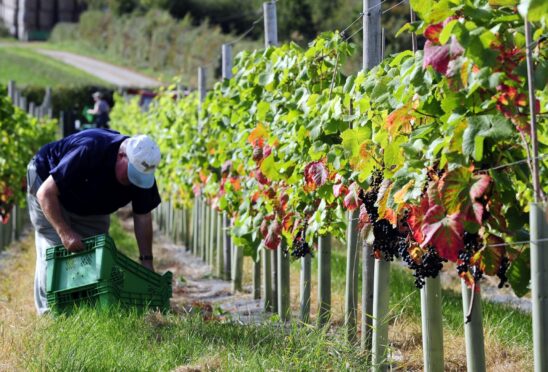The UK Government will extend the seasonal worker visa route for five years until 2029 to tackle labour shortages in the food supply chain.
Addressing the immediate need for more support, 43,000 visas will be available to the horticulture sector in 2025, with another 2,000 visas for poultry.
In its response to John Shropshire’s Independent Review into Labour Shortages in the Food Supply Chain, the government is also set to create a comprehensive strategy to enhance skills provision and attract domestic workers.
The move comes ahead of the second annual Farm to Fork Summit, which will be hosted by the Prime Minister in Downing Street on May 14, bringing together representatives across the UK food supply chain.
43,000 visas for horticulture sector in 2025
UK Government Minister for Scotland John Lamont said: “This package of agriculture initiatives will help ensure long-term certainty for labour needs and make the UK food supply chain the most cutting-edge in the world.
“The extension of the seasonal worker visa route until 2029 is welcome news for Scotland’s growers and producers. While we will always support homegrown labour, we appreciate that the industry is still in need of extra help.
“The produce grown in Scotland is world-class and it’s only right that we make sure farmers and growers have the resources they need.”
2,000 visas for poultry sector
Environment Secretary Steve Barclay added: “We have a world-class food and drink sector, and the measures announced today will strengthen this and reduce reliance on migrant labour in the long term.”
“Businesses do best when they can plan effectively for the future, which is why we’ve extended the seasonal worker visa route until 2029 to give farmers and growers the certainty they need to thrive.”
The government will also work to improve the attractiveness of the sector for domestic workers, building greater collaboration between government, industry and education providers.
This includes collaborating with the Food and Drink Sector Council’s Sector Attractiveness Project Group to improve awareness of the diverse range of opportunities and career paths across the UK food chain.
It will also provide seed funding to establish the Institute for Agriculture and Horticulture (TIAH), a new industry body that will support professional career development.
Further details on the number of visas available for 2026 to 2029 will be set out later this year.
